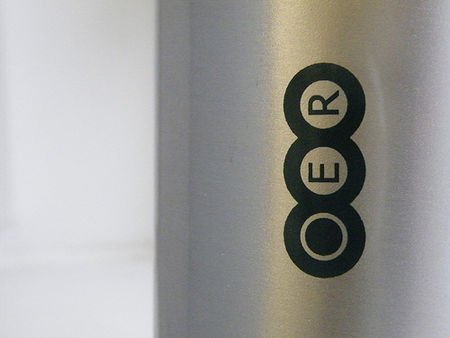Introduction
| Open education practice (#OERuOEP) | |
|---|---|
| Course introduction | Introduction and objectives | Video signpost | Conceptual overview | Learning environment | E-learning activity - Declare yourself | Digital literacy | E-learning activity - CARs Checklist | FAQs |
| “ | Education is an admirable thing. But it is well to remember from time to time that nothing that is worth knowing can be taught. | ” |
| —Oscar Wilde[1] | ||
Welcome to this open course on open education practice. The concept of open education is an umbrella term used to cover a number of related dimensions of openness in education, including for instance: open educational resources (OER), open education practices (OEP), open licensing, open scholarship, open access (OA), open source software (OSS), open policy, open teaching and learning. This Open Education Practice course is focused around the topic of openness in education with a strong emphasis on applying this knowledge in developing OERs to support learning.
Teaching approach
We believe that doing is the best way to learn. This course uses a "work-based learning" approach and participants will engage in the "practice" of reusing, revising, remixing and redistributing open education learning materials. You will participate in an authentic international community of educators collaborating in the open education movement.
This open course will run over fifteen teaching weeks (excluding a two-week recess) and you should aim to allocate about 10 learning hours each week to your studies.
The course uses an activity-based pedagogy, so within each week there will be approximately two e-learning activities. In these e-learning activities you will typically be expected to work through some online material (OERs and open access resources), perform an activity and generate a blog post providing evidence of your learning. Sharing is fundamental to the philosophy of open education. Much of the learning on this course will be gained through the process of sharing the outputs of your activities with fellow learners, connecting with and reflecting on the experiences of the international cohort of learners participating in different components of the course.
The course will bring together learners from around the world. Learners participating in the Open Education Practice course for formal academic credit will join two international open workshops which utilise teaching approaches associated with Massive Open Online Courses (MOOCS) for professional academic development, namely:
- Open Content Licensing for Educators - an international online workshop introducing, open educational resources, copyright and Creative Commons licenses.
- Learning4Content - an international online workshop to develop wiki skills for authoring OER materials.
Learners requesting formal assessment services for academic credit will prepare three assignments which will learner nominated e-learning activities.
The integration of digital literacies for collaborative OER development is a key feature of this course and the activities for the first week are designed to familiarise yourself with the learning environment and to set up the technologies you will be using to support your learning.
In this section of the course you will:
|
Notes
- ↑ http://en.wikiquote.org/wiki/Oscar_Wilde
- ↑ Harris, R. 2010. ‘Evaluating Internet Research Sources’. VirtualSalt. Accessed 17 October 2001.
